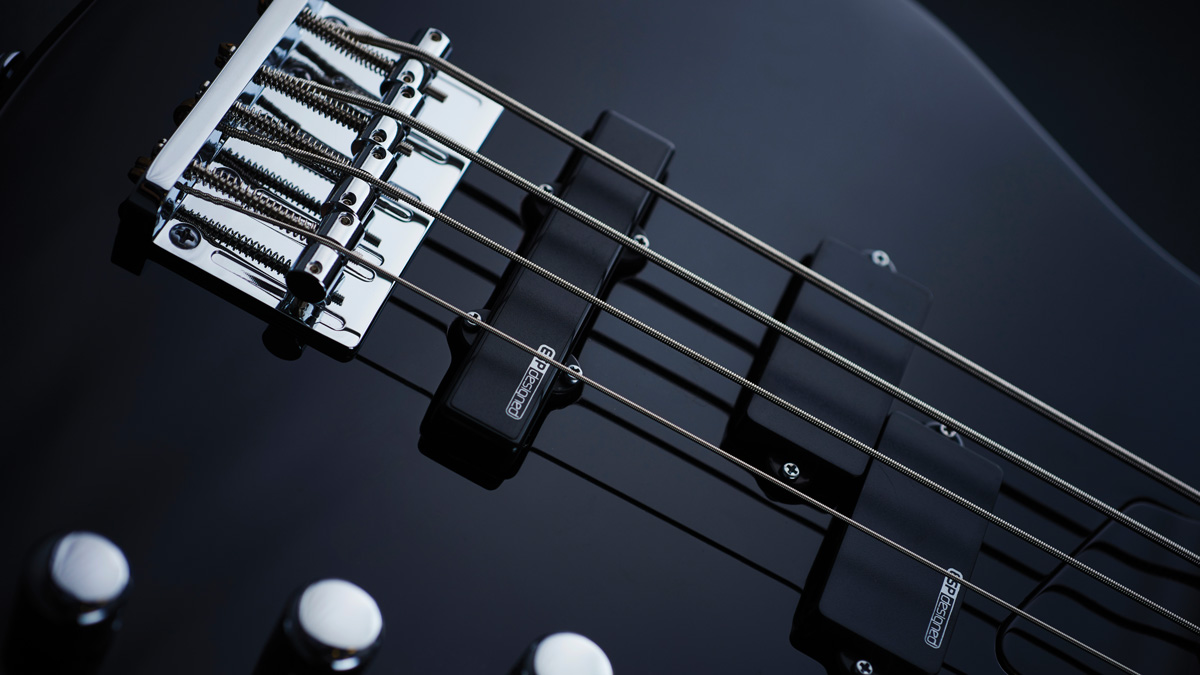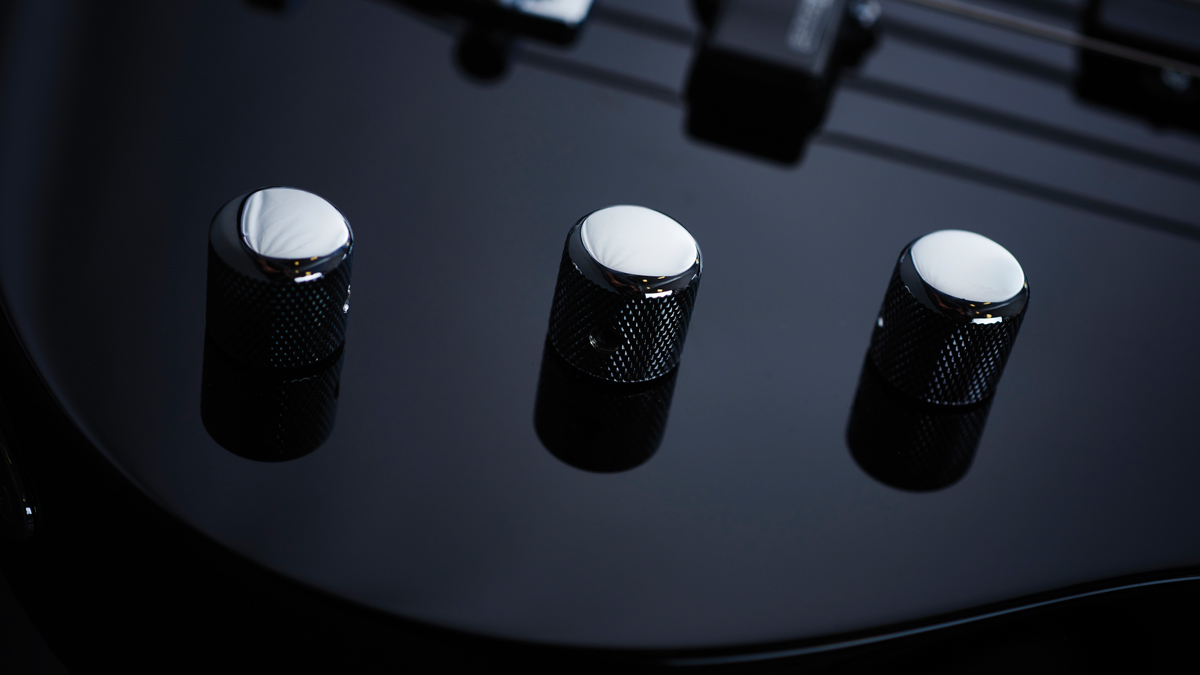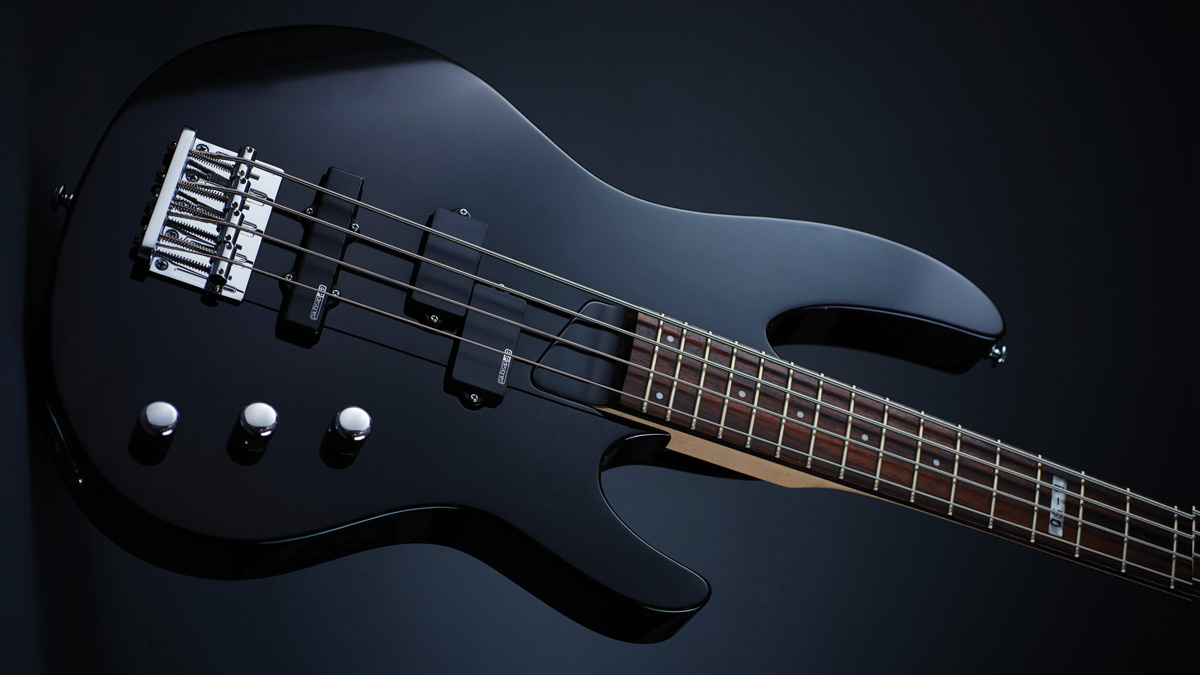MusicRadar Verdict
Great value for money in a very handy package.
Pros
- +
Playability.
- +
Rock-bottom price.
Cons
- -
Limited tonal capabilities.
MusicRadar's got your back
You may be forgiven for looking at this item from ESP’s affordable LTD range and thinking ‘So what? Another cheap bass’ - which is understandable, as this instrument’s looks are modest rather than eye-catching.
So why are we reviewing it? Well, LTD basses have performed well beyond their pricetags in the past, so it’s about time that we took a look at some of their recent offerings. The B-50, at a mere £215, is a fair indication of their starter models - so how ‘basic’ is a basic model these days?
Build
The B-50’s black gloss basswood body is unexpectedly comfortable to wear, with rounded body curves and mild contouring to the front and back of the body. Access to the upper frets of the 24-fret rosewood fingerboard is very good indeed, the cutaway starting around the 23rd fret.
The pickup, bridge and control layout is simple but effective, so for a beginner starting out on their bass journey, it’s ideal. The six-bolt neck attachment is rigid and secure, with no visible gaps around the sculpted neck pocket and overall, the bass feels relatively light but solid in a reassuring way.
None of the hardware feels cheap, and while there are few obvious hardware and finishing frills, the bass offers a high level of playability in a fuss-free manner. Simple pearl dot position markers adorn the rosewood fingerboard, with white dot markers on the side, and a pearl block marker at the 12th fret.

With slim Jazz-like neck dimensions, a rounded neck profile, 19mm string spacing and a high level of finishing with no sharp fret ends, the B-50 is a very enjoyable bass to play. The matching headstock is non-standard, as most LTD instruments are, and while its shape may not be to everyone’s liking, the slim headstock depth and rounded curves help to reduce headstock bias in the weight and balance departments.
The single and split-coil pickups are paired with a 9-volt active circuit, and instead of a two- or three-band EQ, the B-50 comes equipped with an active tone boost and volume controls for each pickup. All of the chrome hardware is securely attached and operates as you would want it to, and again, were you starting out as a player, there would be nothing about this instrument to daunt you.
Want all the hottest music and gear news, reviews, deals, features and more, direct to your inbox? Sign up here.
Sounds
From the off, it is clear that this is a responsive bass with a clearly defined tone. The sustain is equally good, so it comes as no surprise that the B-50 sounds great from the moment it is plugged in. With a solid, crisp tone with both pickups on full and the tone wide open and fully boosted, this is a bass for all musical styles - and although it has been designed and manufactured to a specific price point, there hasn’t been any obvious corner-cutting.
Be prepared for this supposedly ‘cheap’ bass to sound far better than you might expect. Both pickups sound fine individually, with a beefy warmth from the neck split-coil and a twangier snap and midrange from the single-coil at the bridge. It then becomes a case of experimenting with different amounts of output from each pickup to find the sounds you need.

We found it very easy to come up with an array of tones to suit most styles, the active tone boost offering that little bit of extra oomph when required. Although your tone-shaping options are limited, the B-50’s core tone is perfectly acceptable for most applications - and if you find you need a bit more low end, mids and top end, you’ve always got your amp EQ to fall back on.
This bass proves that the pricetag doesn’t always reflect quality. The B-50 is an adaptable bass with great playability, a fine overall setup and some very impressive tones. It is thoroughly suitable as a main bass, a first instrument for a newbie or as a backup bass, and it will do an admirable job in all three roles. Yes, it lacks frills - but at £215, it’s hardly going to break the bank. Well worthy of further investigation.
